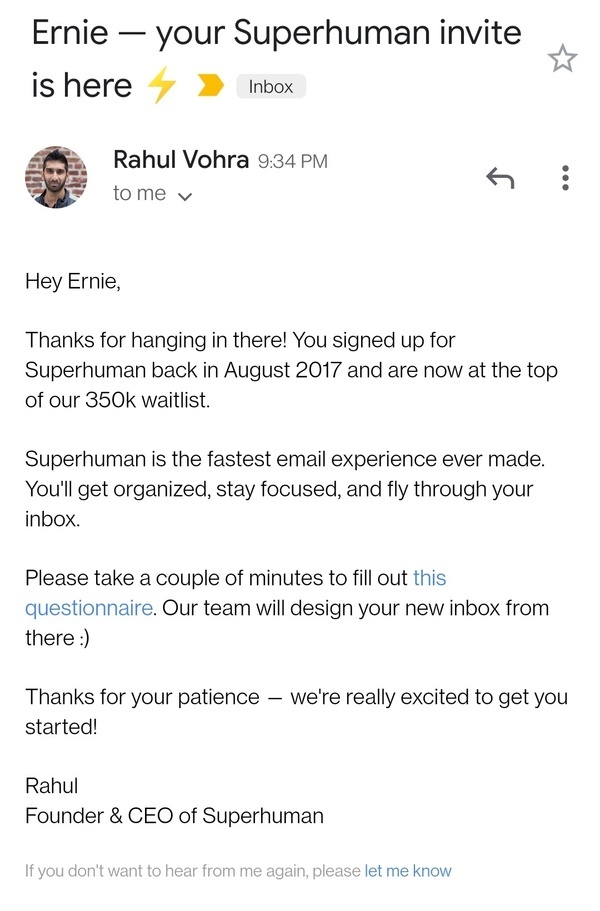
(Verena Yunita Yapi/Unsplash)
Imagine you signed up for something nearly four years ago using your personal email address. It was a trendy thing you probably read about in TechCrunch, thought it was interesting, and decided, “what the heck.”
(Imagine having your heart broken by a similar service just a year or so later.)
Now imagine that you never hear from this company that received your email address four years ago, but you’ve continued to hear about this startup in the press. You’re increasingly hearing details like, “they expect you to pay 30 bucks a month for this thing that most people do for free.” They face a scandal of sorts over their use of a technology commonly used for marketing that they decide to translate over to power users.
They get lots of positive buzz from prominent end users whose names you know, but you don’t understand why it’s such a big deal. Still, you’re willing to give it a shot.
But because they’ve forced you to wait so long, it’s created a lot of external knowledge about their service, allowing for the existence of harsh reviews that describe their service as “overhyped and overpriced,” while even more favorable ones suggest it’s not for everyone.
Now imagine, two years later, having completely forgotten about the first effort to sign up for the service, you sign up again under another email account. And despite signing up for that second account first, you hear back about an invite after two years, rather than four.
When you get the invite, you sign up. The signup process comes with a long form that takes a while to fill out, but you decide to give it a chance. After all, the guy who built this also came up with another piece of software you’ve used in the past.
You take a look out of curiosity, but then realize, “I’m not paying $30 a month just to kick the tires on this.”
Now imagine, four years later, having used email for four years without the benefit of some super-service to manage your messages, and you see this pop up in your personal inbox:

(Yes, despite signing up at this email address first, it got in last. You think about the fake class war that it created by probably making that decision based on the fact that the address ended in gmail.com, rather than some domain.)
Imagine how little this startup must think of you or your time that it would willingly send out an invite to a service nearly four years after you first signed up, a million years in tech time. Imagine your fake-shock when a friend of yours tells you it’s probably a lead-gen scheme at this point, and it’s probably not really even an invite. Imagine how you feel when you load up the app’s home page and realize there’s no longer a wait list.
Imagine that it was easier to get vaccinated in March than it was to get an invite to Superhuman.
And imagine, after seeing this message and being a professional writer, the feeling you’ve been given after realizing that this startup has given you excellent fodder for the newsletter with a time limit you write as you point out that this is a crappy way to treat people who might have potentially paid money for a service like this.
Superhuman, for the love of God, you’ve taken all the fun out of waiting for access to an email client. In the words of DJ Khaled, “Congratulations, you played yourself.”
Time limit given ⏲: 30 minutes
Time left on clock ⏲: 2 minutes, 57 seconds



